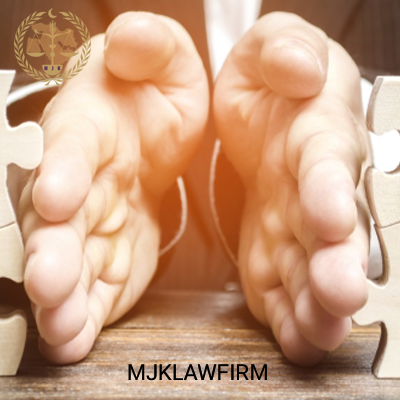What Happens to Inheritance Without a Will in Iran?
What Happens to Inheritance Without a Will in Iran? reclaim Confiscated Property in Iran: Legal Options for Returning IraniansWhen a loved one passes away without a will in Iran, many families are left wondering how the estate will be distributed. Unlike jurisdictions that rely on civil codes or common law intestacy statutes, Iran applies Islamic succession principles embedded in its civil law framework. The result is a well-defined, faith-based approach that dictates specific shares for heirs — regardless of personal preferences or family dynamics.
This article explains what happens to inheritance without a will in Iran, how the rules of Islamic (Shia) succession work, what role religious courts play, and what heirs should do to secure their legal rights. If you’re navigating an inheritance matter in Iran without a testament, this guide is for you..in mjklawfirm
What Does “Inheritance Without a Will” Mean in Iran?
In legal terms, intestate succession refers to the distribution of a deceased person’s estate when they leave no valid written Will. In Iran, this triggers automatic application of Islamic Sharia-based rules, specifically the Twelver Shia interpretation, as codified in Iran’s Civil Code.
These rules govern:
Who qualifies as an heir
What share each heir receives
Priority between relatives
Whether non-Muslims can inherit
Key Legal Foundations of Intestate Succession in Iran
. Sharia-Based Shares under Iranian Law
The Iranian Civil Code, particularly Articles 861 to 949, outlines how assets are distributed based on Islamic principles. In general:
Spouses, parents, and children are prioritized.
Each heir receives a fixed fractional share based on kinship.
The estate is divided into primary and residual categories.
For example:
A wife receives 1/8 of the estate if there are children, or 1/4 if there are none.
A husband receives 1/4 with children, or 1/2 without children.
Sons receive twice the share of daughters.
In the absence of children, parents and siblings become key heirs.
These shares are mandatory — a court will not vary them, and personal opinions or moral claims (unless backed by a valid will) carry no weight.
2. Exclusion and Priority of Heirs
Islamic inheritance follows a clear hierarchy:
First, children and spouses and parents
Then, siblings and extended family
If an heir exists in a higher category, those in lower categories are excluded entirely. For example, if a deceased has children, siblings will not inherit.
3. Inheritance by Non-Muslims and Foreign Nationals
A non-Muslim cannot inherit from a Muslim (per Iranian legal and religious norms).
Iranian law allows muslims to inherit regardless of their home country, subject to court review.
Also, non-muslims can inherit other non-muslims.

Follow us in social media
Dispute Resolution Counsils: The Key Authority in Iranian Inheritance Cases
- All inheritance matters, especially intestate cases, are processed under the supervision of IranianDispute Resolution Counsils. These courts:
- Verify the death certificate and heirship
- Certify the identity and share of each heir
- Appoint executors (if needed)
- Issue a court order dividing the estate
- A process called Probation letter must be obtained — this is mandatory for any property transfer, bank withdrawal, or real estate registration.

Practical Steps for Heirs: What to Do First
If your relative has passed without a will, follow these practical steps:
Step 1: Register the Death
File the death certificate with the Civil Registry Office.
Step 2: Obtain the Probation Letter
Apply to the local court with:
Death certificate
ID documents of all heirs
Confirmation of no will (or invalidate an informal one)
Witness statements (if required)
Step 3: Assess the Estate
Gather and list all assets, debts, and legal obligations of the deceased.
Step 4: Pay Off Debts
Under Iranian law, debts are paid before inheritance is distributed.
Step 5: Request Property Transfer
Once shares are approved, the estate may be legally transferred to heirs — real estate, vehicles, stocks, etc.
Common Disputes and How a Lawyer Helps
Despite fixed legal rules, inheritance disputes are common — particularly when:
An heir is disinherited informally
There are claims of forgery or undue influence
Disagreements arise over the true number of heirs
Foreign assets or international family members complicate the estate
You May Need to:
Contest a forged will in Iranian court
Defend against an unjust claim
Prove blood relation (in paternity-based claims)
Interpret Islamic inheritance rules in mixed-religion families
An experienced Iranian inheritance lawyer can help:
Navigate court bureaucracy
Protect minor or vulnerable heirs
Resolve conflicts in large estates
Handle assets across multiple jurisdictions
Mistakes to Avoid
Many families make costly errors during intestate succession, including:
Distributing assets without court approval
Failing to report assets to the court
Assuming inheritance laws follow Western norms
Overlooking the rights of female heirs or spouses
These mistakes can invalidate transfers or create long-term disputes.

Our Firm’s Approach
At MJK Law Firm, we assist families across Iran and internationally with:
Court petitions for heirship certificates
Real estate and bank asset recovery
Cross-border inheritance involving dual nationals
Representing clients in inheritance disputes in Iran
Advising on Islamic succession rules and exceptions
Whether you are a son, daughter, spouse, or distant relative, our lawyers will help you understand your share, assert your rights, and protect your interests.
FAQ
Can I contest a will in Iran if I believe I was unfairly excluded?
Yes, but only if you can prove legal grounds — such as fraud, coercion, or the will exceeding the legal 1/3 portion limit. A lawyer can help initiate a formal court challenge.
❓What if I’m a foreign citizen but an heir to an Iranian estate?
You may inherit. An inheritance lawyer can help ensure compliance with Iranian court procedures and international legal standards.
❓Can an adopted child inherit in Iran?
Legally adopted children (under Iranian law) are not entitled to a share under Islamic succession unless specified in a valid will (up to 1/3 of the estate).
❓What if an heir is missing or abroad?
The court can still proceed, but will require notice and potentially appoint a guardian or trustee for that heir’s share until they appear.
❓Are there any taxes on inheritance in Iran?
Yes, inheritance is subject to inheritance tax under the Direct Taxation Law. The rate depends on asset type and relationship to the deceased.
